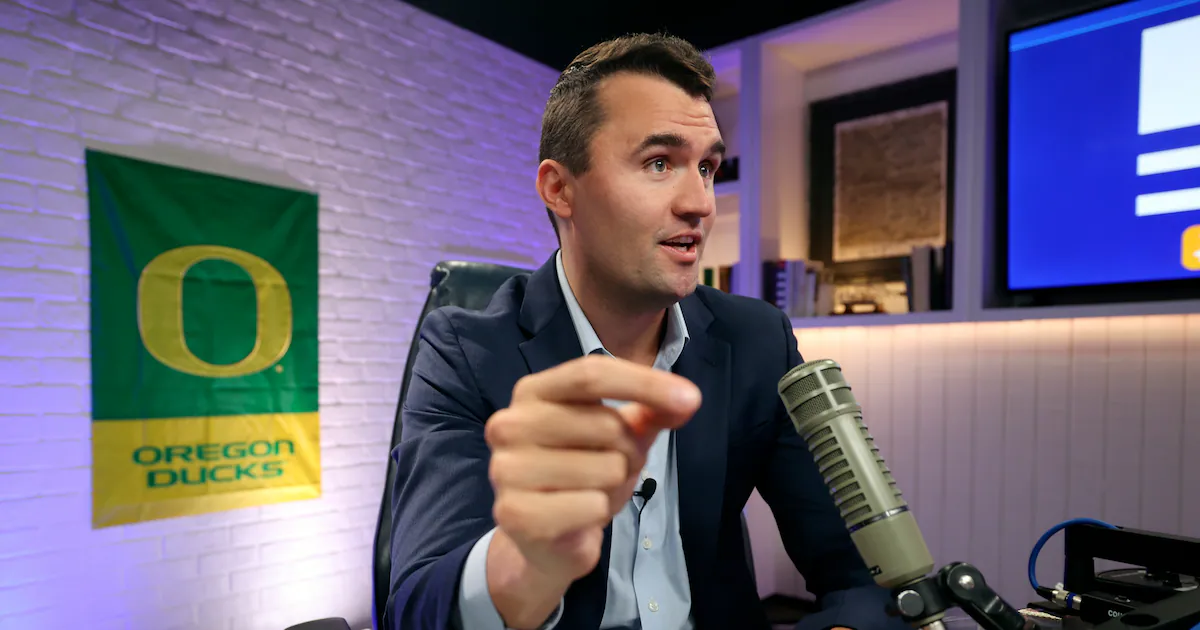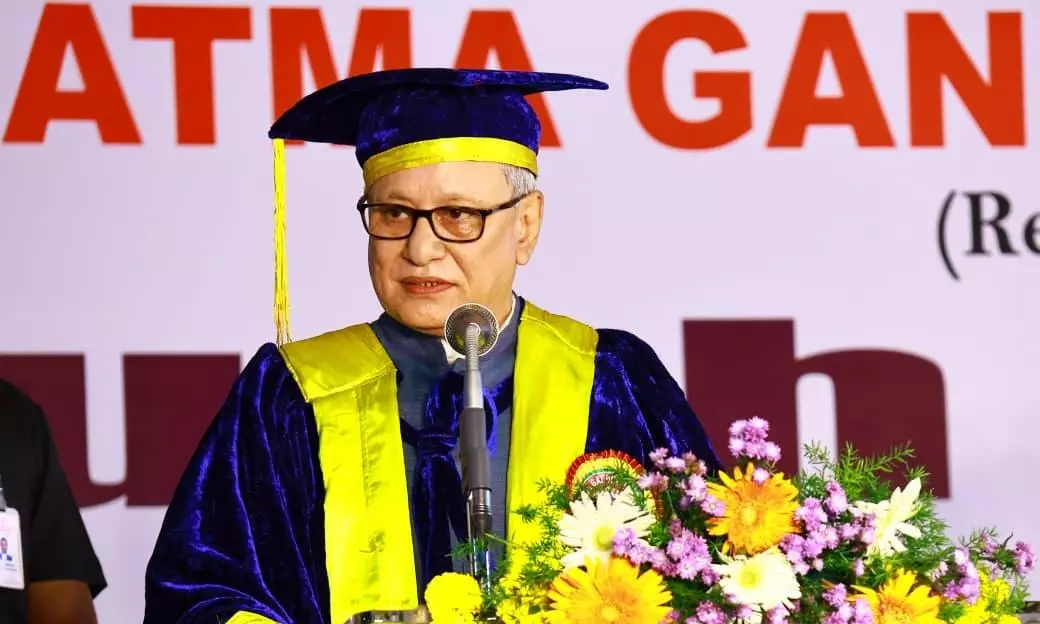
Charlie Kirk was a national conservative. I am a freedom conservative. While both right-wing activists, we nevertheless shared deep disagreements over the vision and direction for the conservative movement and the Republican Party.
But such cursory distractions no longer matter. In the wake of the vicious evil of an assassin’s bullet at my own home campus of Utah Valley University, Charlie Kirk stopped being my political opponent. He became a martyr. And that’s how I will choose to remember him.
But a martyr for what? Charlie Kirk was an intensely active political figure with opinions on virtually every issue. For which of these opinions was he so wrongly slain?
Since the capture of Charlie’s assassin, we’ve begun learning about some of the political motivations for this tragic instance of violence. But we don’t need to allow the radicalized vision of the perpetrator to dictate how we remember Charlie Kirk. Nor do we need to agree with everything Charlie Kirk said or did to honor him, because he stood for some things which we can all agree on, and the location and manner of his death connect directly to those things.
Charlie’s political journey began in 2012 with an essay in Breitbart News about the political bias he observed from his teachers as a high school student. He utilized the tremendous exposure his essay gave him to found Turning Point USA that same year. The organization under his leadership focused heavily on advocating for free speech on campus. Even before the rise of Donald Trump in 2016, Charlie Kirk had already expanded his effort to the point that most major universities and many, many others all had a Turning Point club.
Charlie Kirk’s efforts at Turning Point USA were so focused on freedom and liberty that he was often accused of being libertarian rather than conservative, and his organization was compared favorably to the Federalist Society for its ability to bring in both conservative and libertarian-minded students and unite them toward the efforts of establishing open inquiry and freedom of speech on college campuses. The pithy and combative, but very effective, unofficial motto “Big Government Sucks” came to be seen on posters and banners across America as Turning Point advocated strongly for constitutionally limited governance and freedom on campus.
Many might say that after the rise of Donald Trump, Charlie Kirk evolved from his more libertarian roots, embracing populist and nationalist rhetoric as he attached himself to the America First and MAGA movements. And there is some evidence of that.
But however one might judge Charlie Kirk and his direction in the Trump era, one thing never changed across Charlie Kirk’s life. He remained a determined and consistent champion of open inquiry in higher education, a staunch defender of freedom of speech on the college campus, and an advocate for an innovative heterodox rather than a stifling orthodox culture in academia. And the place and manner of his death punctuate these things as his defining legacy.
Charlie Kirk was slain doing the very thing he believed in consistently and wholeheartedly across his entire political career: speaking his mind at a college campus and organizing students toward speaking their own minds.
He was exercising core tenets of the American Republic in exercising his freedom of speech and freedom of association. He deserved to have exercised these things without fear, to have lived out the American creed of embracing the unalienable right to life, liberty and happiness. Instead, those things were brutally ripped away from him, and because they were so desecrated, the freedom and liberty we all claim a right to stands a little less secure than it did the morning of Sept. 10th.
The promise of America is that “every one shall sit in safety under his own vine and fig tree and there shall be none to make him afraid.” The assassination of Charlie Kirk was an attack upon that promise and an attack upon us all. Whether you liked Charlie Kirk or not, whether you agreed with him or not, whether you think he himself became a part of the problem in recent years … we should nevertheless be in mourning, because a free man does not deserve such a fate and free people everywhere should revile against so fundamental an assault upon liberty, decency and peace.
So, let us remember Charlie Kirk as a champion of free speech and a martyr for liberty. Let us honor him by ensuring college campuses embrace their role as open spaces for free inquiry, as spheres for the cultivation of deliberation and debate, and as a focal point for the exercise of our most fundamental and cherished God-given right: to speak our minds as free Americans without fear.
May Charlie Kirk find rest in the eternal embrace of the Almighty, and may his memory stand as a pillar of freedom in our nation’s history.



